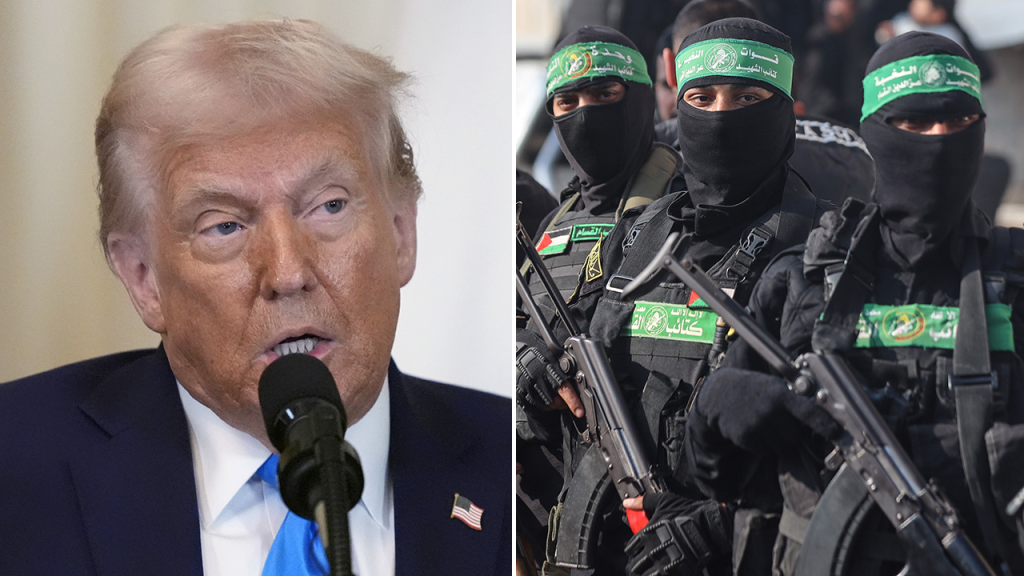Hamas has expressed its willingness to accept a ceasefire agreement with Israel, although it has not endorsed a specific 60-day pause proposed by President Donald Trump. The organization’s official, Taher al-Nunu, emphasized that Hamas is open to any proposal that leads to the complete cessation of the ongoing conflict. A delegation from Hamas is set to meet with mediators from Egypt and Qatar in Cairo to discuss the matter further, amidst ongoing tensions in the region.
| Article Subheadings |
|---|
| 1) Hamas Readiness for Ceasefire |
| 2) Details of the Proposed Ceasefire |
| 3) Conditions for Hostage Release |
| 4) Israel’s Position |
| 5) Implications of the Ceasefire Proposal |
Hamas Readiness for Ceasefire
On Wednesday, Hamas officially declared its readiness to consider a ceasefire with Israel. Taher al-Nunu, a key spokesperson for the group, stated that they are open to any initiative that would lead to the complete end of hostilities. This announcement marks a significant shift, especially given the ongoing violence that has characterized the recent conflict. The willingness of Hamas to engage in negotiations may provide an opportunity for conflict resolution, but the organization remains firm on specific conditions that must be met for a ceasefire to be agreed upon.
Details of the Proposed Ceasefire
The ceasefire proposal, suggested by President Donald Trump, outlines a potential 60-day halt to the fighting. This proposal, however, remains contentious as Hamas has not fully endorsed it. The organization’s leadership plans to meet with Egyptian and Qatari officials to discuss the specifics of the offer. These talks are critical, as they aim to establish a framework for a ceasefire that addresses the needs and concerns of all parties involved. At the crux of the negotiations is a call for a total cessation of offensive actions and a clear timeline for future engagements.
Conditions for Hostage Release
One of the main points of contention in the ceasefire discussions involves the fate of hostages. Hamas has indicated a willingness to release approximately 50 hostages in exchange for certain guarantees. However, Taher al-Nunu stated that fewer than half of these individuals are still alive. This grim reality underscores the complexities of the situation, as hostage negotiations are often fraught with moral and ethical dilemmas. Hamas’s demands include an immediate halt to Israeli military actions in Gaza and guarantees of their security and sovereignty following any agreement.
Israel’s Position
Israel’s stance on the ceasefire proposal remains rigid. Israeli officials have stated that Hamas must surrender, disarm, and agree to exile themselves from Gaza as key preconditions for any negotiation. An Israeli official outlined that the current ceasefire proposal includes a phased withdrawal of Israeli forces from parts of Gaza; however, specifics about the timeline and scope of this withdrawal remain unclear. They also mentioned that humanitarian aid would be significantly increased to address the pressing needs of the civilian population in the region, suggesting a more humanitarian approach might persuade Hamas to consider the offer seriously.
Implications of the Ceasefire Proposal
The potential acceptance or rejection of Trump’s ceasefire proposal could have profound implications for both Israel and Palestine. If a ceasefire is achieved, it may pave the way for longer-term peace negotiations and the establishment of mutual agreements geared toward coexistence. Conversely, should hostilities continue, the humanitarian situation in Gaza is expected to worsen, leading to potential escalations in violence. Additionally, the international community’s role in mediating these talks demonstrates the complexity of geopolitical interests in the region, which often intersect with local grievances and historical animosities.
| No. | Key Points |
|---|---|
| 1 | Hamas is willing to discuss a ceasefire but has not formally endorsed a specific proposal. |
| 2 | Negotiations are set to take place in Cairo between Hamas and mediators from Egypt and Qatar. |
| 3 | Hostage releases are a contentious issue, complicating ceasefire negotiations. |
| 4 | Israel’s demands include the disarmament of Hamas and a complete withdrawal from Gaza. |
| 5 | The outcome of the negotiations could drastically affect the humanitarian situation and future peace efforts. |
Summary
In conclusion, the ongoing situation between Hamas and Israel remains critical, with current efforts aimed at establishing a formal ceasefire agreement. Hamas has expressed its readiness to engage in negotiations while maintaining specific demands. Meanwhile, Israel’s staunch conditions complicate the potential for a peaceful resolution. The involvement of international mediators will be pivotal in determining the future of the conflict, making it essential for all parties to approach the talks with a genuine commitment to peace.
Frequently Asked Questions
Question: What does Hamas demand for a ceasefire?
Hamas demands the complete withdrawal of Israeli forces from Gaza and the release of hostages as conditions for agreeing to a ceasefire.
Question: What is the role of Egypt and Qatar in this situation?
Egypt and Qatar are serving as mediators, facilitating discussions between Hamas and Israel to negotiate peace terms and a potential ceasefire.
Question: How might the proposed ceasefire impact the humanitarian situation in Gaza?
If a ceasefire is established, it could significantly increase humanitarian aid and improve living conditions in Gaza, but ongoing hostilities would exacerbate the humanitarian crisis.


